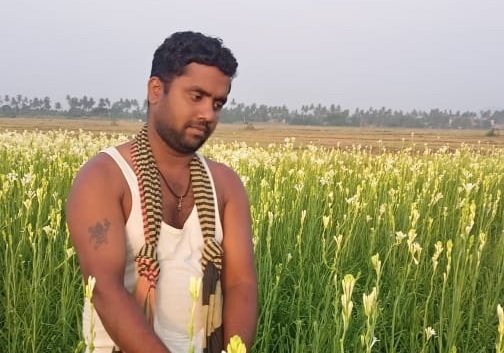Berhampur: Cultivation of tuberose (Rajanigandha) flowers is a lucrative business. If marketed properly, it is a source of substantial earnings for farmers. However, lack of marketing facilities is hurting tuberose farmers in Ganjam district, locals informed Wednesday.
The effort and energy spent in producing tuberose flowers pales in comparison to the meagre amounts earned, they added. Rajanigandha flowers are mainly cultivated in Digapahandi and Hinjilicut blocks of Ganjam district. More than 100 acres of land are used for the production of Rajanigandha flowers, officials of the district Horticulture department informed.
Farmers, however, alleged that as the state government has not put up a proper marketing system in place, they have to incur heavy losses. Ralabha village under Hinjilicut block is famous for its Rajanigandha cultivation. In fact, the place has been nicknamed ‘Rajanigandha village’. Rajanigandha cultivation in the village started after the 1999 Super Cyclone. A resident of the village Jhumar Dalai, along with some young farmers started tuberose cultivation. Now more than 107 families of the village are engaged in the cultivation of Rajanigandha. Each of the families cultivates tuberose on lands measuring 0.4 acre to one acre.
The daily production ranges from 300-400kgs. Flowers are supplied to florists in this city, Aska, Sorada, Bhanjanagar, Bhubaneswar, Bhawanipatna, Puri and Nabarangpur. “Tuberose flowers grown in Ralabha are in great demand in various parts of the state. The total income for all the families can be well over rupees one crore annually if the product is marketed properly,” Kalu Charan Dalai, a young farmer informed. The ‘Krishi Vigyan Kendra’ here is encouraging farmers of Ralabha village to take up cultivation of the ‘Prajwal’ variety of tuberose. It is a better product, officials said. “The new variety has two petals and hence weighs more. It is a better product for making garlands,” opined chief and senior scientist of ‘Krishi Vigyan Kendra’, Dr Sujit Kumar Nath.
Scientists are also training the Rajanigandha farmers of Ralabha village by regularly organising discussion sessions. Farmers are attending workshops on soil testing, use of organic manures, benefits of using bio-fertilisers and phospho bacteria on their farmlands for better yields. Farmers have also welcomed this move, officials informed. Rajanigandha farmers meanwhile informed that they get an annual financial assistance of Rs 6,000 for cultivation of tuberose on 1.5 acres of land. They use the money to buy shoots and fertilisers, farmers said.
However, they reiterated that the absence of a proper marketing system is hurting them badly. They also lamented the lack of storage facilities. Farmers added that the government should address these issues. When contacted, assistant director Subhash Chandra Panda of the district Horticulture department informed that recently the state government has fixed the selling price at Rs 50 per kilogram for Rajanigandha farmers. He said that the collector of Ganjam has welcomed the move and will soon implement the rate in the district.






































